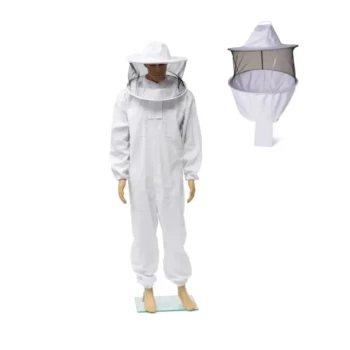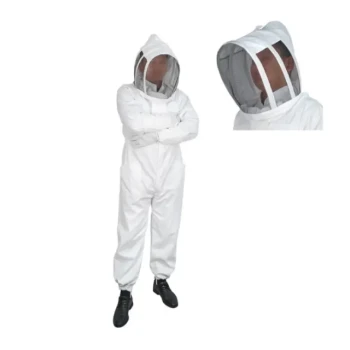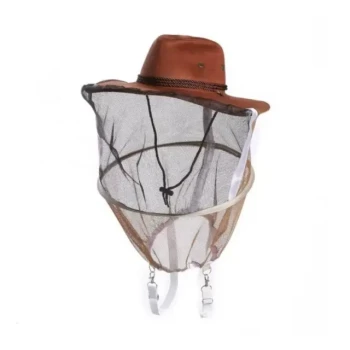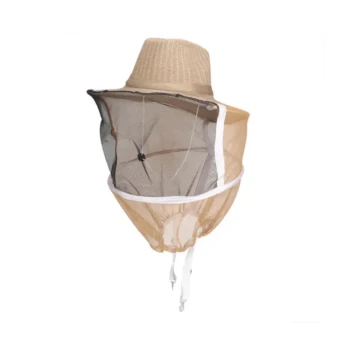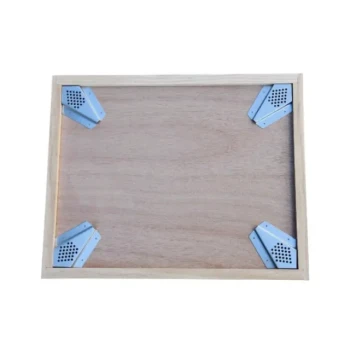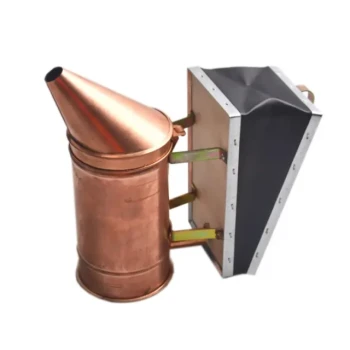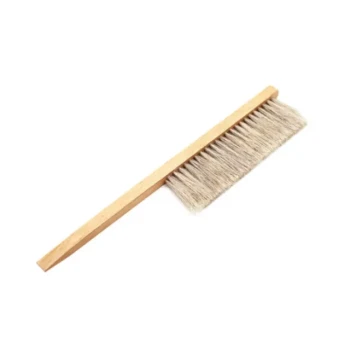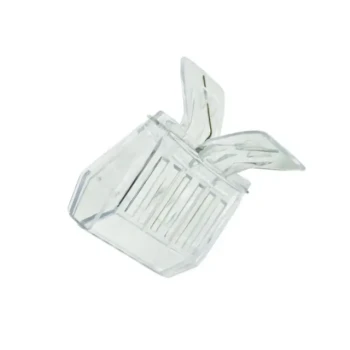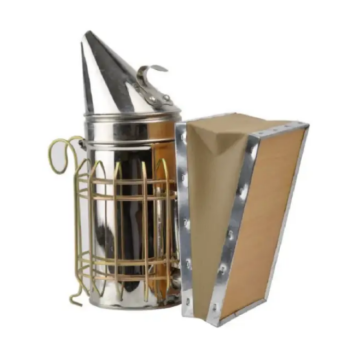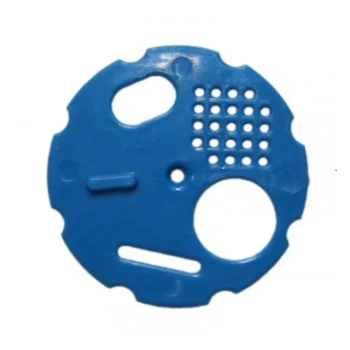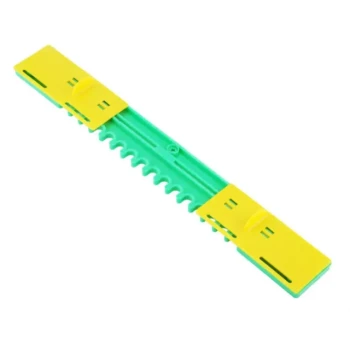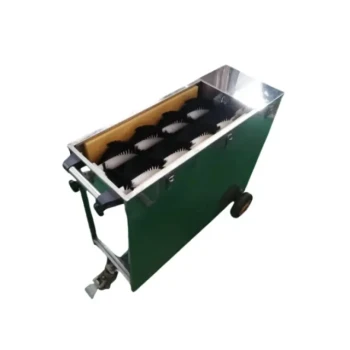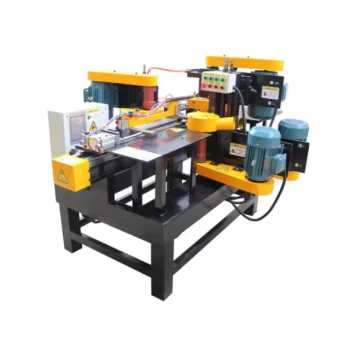Proper footwear is crucial for beekeepers because it serves as the foundation for your safety and stability in the apiary. The right boots protect you from stings on your feet and ankles, provide sure footing on often uneven or wet ground, and complete the seal of your protective suit, preventing bees from crawling inside.
While a veil and suit get most of the attention, your choice of footwear is a non-negotiable part of your safety system. It's the critical link that secures you to the ground and seals the most vulnerable entry point for bees, directly impacting your confidence and effectiveness.
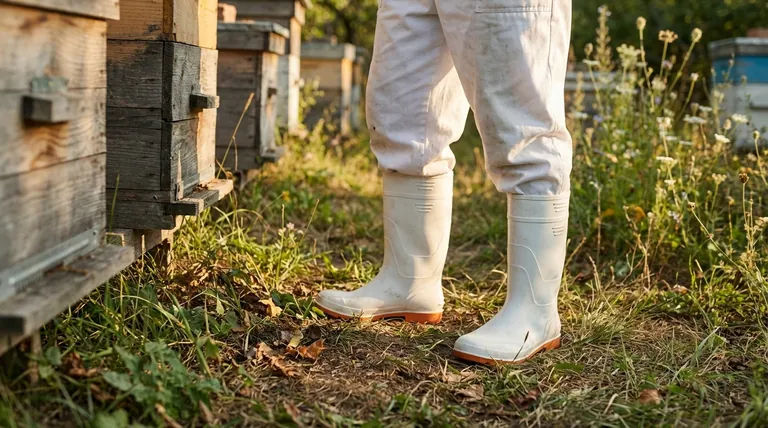
The Core Functions of Beekeeping Footwear
A beekeeper's work environment is unpredictable. Your footwear must be chosen to mitigate the specific risks you will face during hive inspections and yard maintenance.
Preventing Stings and Intrusions
The most obvious function of proper footwear is to prevent stings. Foraging bees often land in the grass or on the ground around the hive, and defensive bees may target a perceived threat from the ground up.
Open-toed shoes, sandals, or even standard sneakers with mesh panels are an open invitation for stings. A bee that gets trapped inside a shoe or sock will almost certainly sting.
Ensuring Stability on Uneven Ground
Bee yards are rarely perfectly flat, paved surfaces. You will be navigating grass, mud, hidden divots, and uneven terrain, often while carrying heavy boxes of honey or frames of bees.
Sturdy, closed-toe boots with good ankle support prevent slips, trips, and falls. A sudden fall can not only cause personal injury but can also result in dropping a hive body, which is a disastrous event that will trigger a massive defensive response from the colony.
Creating a Complete Barrier
Your bee suit is only effective if it creates a continuous, sealed barrier from head to toe. Your feet and ankles represent a major vulnerability.
Proper beekeeping boots are tall enough to allow you to tuck your suit's pant legs inside them. This creates an overlap that makes it nearly impossible for a bee to find a gap and crawl up your leg. Some beekeepers use straps or bands to further secure this connection.
Footwear's Role in a Complete Safety System
Thinking of footwear in isolation is a mistake. It is an integral component of a system designed not just for physical protection, but for psychological confidence.
The Psychology of Confidence
A beekeeper who feels secure is a calm beekeeper. Calm, deliberate movements are less likely to alarm the bees and provoke a defensive reaction.
If you are constantly worried about a bee crawling into your shoe or a potential sting on your ankle, you cannot focus on the hive. This distraction and anxiety can lead to clumsy mistakes, which in turn agitate the colony and increase the likelihood of stings.
A System from Head to Toe
Every piece of protective gear has a role. The veil protects your face and eyes, the suit and gloves protect your body and hands, and the boots protect your feet and ankles.
When all components work together, they form a comprehensive defense that allows you to work safely and efficiently. A weakness in one area—especially the foundation provided by your footwear—compromises the entire system.
Common Pitfalls and What to Avoid
Choosing the wrong footwear can be a painful and disruptive mistake. Understanding what not to wear is as important as knowing what to wear.
The Mistake of Casual Footwear
Never wear sneakers, sandals, Crocs, or any open-toed or mesh-paneled shoe into a bee yard. Their porous nature and low profile offer easy access for bees and provide virtually no protection or stability.
Forgetting the Seal
Simply wearing boots isn't enough. If you do not securely tuck your pants into your boots, you leave a dangerous gap. A bee that gets inside your suit will become disoriented and aggressive, and you will likely receive multiple stings while trying to get it out.
Making the Right Choice for Your Apiary
Your choice of footwear should be a deliberate decision based on protection, stability, and comfort.
- If your primary focus is maximum protection and easy cleaning: Choose tall, seamless rubber boots (like Wellingtons), as they provide an impenetrable barrier and can be easily hosed off.
- If your primary focus is ankle support and all-day comfort: Opt for a pair of sturdy, over-the-ankle leather work boots, ensuring they are high enough to tuck your pants into securely.
- If you are a beginner or working in a hot climate: Consider a lighter-weight "yard boot," but verify it is fully sealed and provides adequate ankle support and height.
Investing in proper footwear is an investment in your safety, your confidence, and your ability to be a calm, effective beekeeper.
Summary Table:
| Function | Why It Matters |
|---|---|
| Sting Prevention | Protects feet and ankles from stings; prevents bees from crawling inside your suit. |
| Stability & Support | Provides sure footing on uneven ground, preventing slips and falls while carrying heavy equipment. |
| Complete Barrier | Seals the bottom of your bee suit when pants are tucked in, eliminating a major vulnerability. |
| Confidence & Focus | Allows you to work calmly and effectively, reducing anxiety and clumsy mistakes that agitate bees. |
Are you a commercial apiary or beekeeping equipment distributor? Equip yourself and your customers with the right foundation for safety. HONESTBEE supplies high-quality beekeeping footwear and equipment through wholesale-focused operations. Contact us today to discuss your needs and ensure every beekeeper is protected from head to toe.
Visual Guide
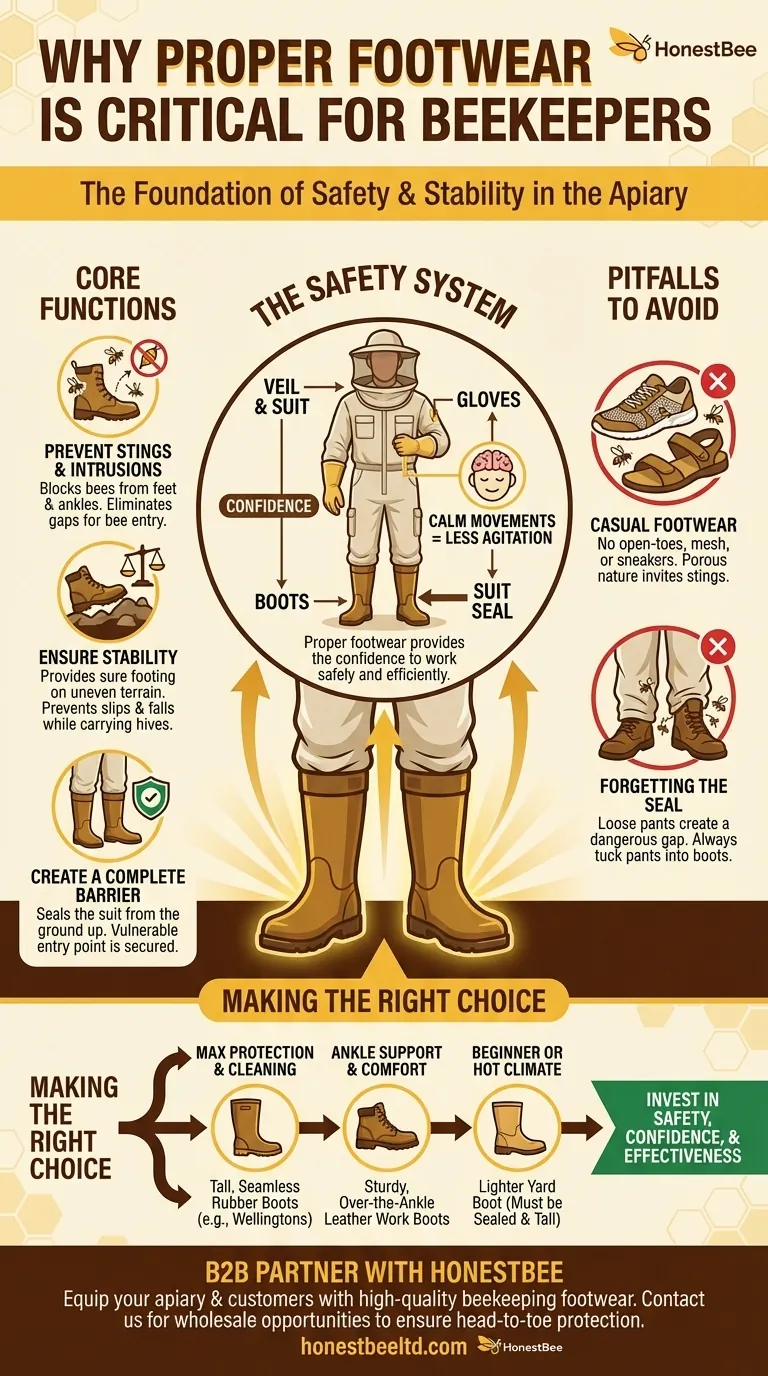
Related Products
- White PVC Beekeeping Shoes with Non-Slip Safety Sole
- Professional Cotton Beekeeper Suit with Round Veil Design for Commercial Apiaries
- Premium Cotton Beekeeper Suit with Reinforced Fencing Veil
- Beekeeping Jacket with Hood and Veil for Beekeepers
- Economy Polyester Beekeeping Jacket with Veil and Hat
People Also Ask
- What should be considered regarding the ventilation of beekeeping shoes? Balance Comfort and Hive Safety
- What is the importance of ensuring no gaps between pants and boots in beekeeping? Prevent Bee Intrusions & Stay Safe
- Why is slip resistance a critical feature for beekeeping shoes? Ensure Stability and Safety in the Apiary
- What should be considered when choosing boots for beekeeping? Ensure Complete Protection and Comfort
- What are some tips for choosing beekeeping shoes? Essential Guide to Safe & Comfortable Footwear
- Can rubber boots be worn for beekeeping? Achieve Total Protection & Hygiene
- What should be avoided when choosing footwear for beekeeping? Ensure Complete Protection from Stings
- What types of shoes are commonly used by beekeepers? Achieve Maximum Safety and Comfort

